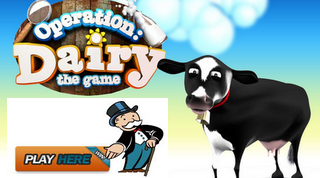Technical Support

According to Fiona MacGillivray, Veterinary Adviser at Merial Animal Health, the vets are right to be concerned. “Once pneumonia develops it can do irreparable damage, and this will inevitably affect the life-time performance of both dairy and beef animals. For instance, dairy calves that suffered from pneumonia pre-weaning have been shown to give reduced yields - down four per cent in the first lactation and 8% in the second.”
All the vets questioned agreed that pneumonia remains a common problem, while 70 per cent said that levels of the disease had increased or stayed the same. Only 15 per cent said that the level of calf pneumonia was decreasing as a result of better controls which included vaccination.
In response to a question about the speed of action of the antibiotic used to treat pneumonia, 90 per cent agreed that this is important. However, there was less consensus on the length of action required with the largest number (40 per cent) agreeing with a period of one to two weeks as the ideal duration.
Fiona MacGillivray says: “Following infection lung repair can take up to ten days, so animals remain at risk from re-infection during that repair phase. If the length of activity from an antibiotic does not persist during the repair phase then re-treatment may be necessary. Repeat treatments mean more frequent handling of sick and stressed animals, in addition to the expense of the antibiotic. A treatment which can provide protection against re-infection during the repair phase means a lower risk from re-infection and faster recovery from disease.
There was also little agreement among those questioned about the use of antibiotics to treat clinically unaffected animals in the same group as those that are sick (metaphylaxis). Some 30 per cent of vets said that they would use this strategy, 30 per cent said it depended on the percentage of animals affected. Others would only use if requested by the farmer (10 per cent), or said they used it sometimes (10 per cent), while 15 per cent said they would wait and see.
Given the cost of antibiotics, it was not surprising that 55 per cent agreed that it was better to have injectable products in a plastic bottle that doesn’t break when dropped.
Past research has revealed that pneumonia is a real concern for all cattle farmers. Nearly a quarter of dairy farmers saw it as a threat to productivity (23 per cent), but rated it behind TB, mastitis and BVD, while nearly four in ten (37 per cent) beef farmers agreed that it was a threat, rating it only second to TB.
Merial Animal Health’s antibiotic ZACTRAN® is designed specifically for the treatment and prevention of pneumonia in cattle and is becoming increasingly popular with vets. The active ingredient in ZACTRAN®, gamithromycin, concentrates in the lungs to fight bacterial infection. It is fast-acting, lasts for up to 15 days and only requires a single shot, thus reducing handling and additional stress to the animals.























